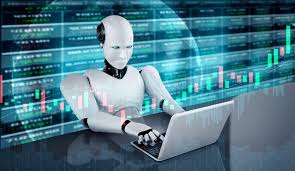In the fast-paced world of foreign exchange (forex) trading, where markets operate 24/7 and decisions must be made swiftly, traders are constantly seeking ways to enhance their strategies and efficiency. One tool that has gained significant traction in recent years is the forex robot, also known as an forex robot (EA). These automated trading systems promise to execute trades on behalf of the trader, eliminating emotional decision-making and allowing for round-the-clock trading. However, like any tool, forex robots come with their own set of advantages and disadvantages.
What Are Forex Robots?
Forex robots are software programs designed to analyze the forex market, identify trading opportunities, and execute trades automatically on behalf of the trader. These robots are based on predetermined algorithms and trading strategies, which can range from simple to highly complex. Some forex robots come pre-packaged with specific strategies, while others allow for customization and programming according to the trader’s preferences.
Pros of Using Forex Robots:
- Emotion-Free Trading: One of the primary benefits of using forex robots is the elimination of emotional trading. Fear and greed can often cloud a trader’s judgment, leading to irrational decisions. Forex robots operate based on programmed logic, executing trades solely based on predefined criteria, thus removing the emotional element from trading.
- 24/7 Trading: Unlike human traders who need rest, forex robots can operate continuously, monitoring the markets and seizing opportunities even while the trader sleeps or is occupied with other tasks. This round-the-clock functionality can be particularly advantageous in the forex market, where opportunities can arise at any time.
- Backtesting and Optimization: Forex robots allow traders to backtest their strategies using historical data, providing insights into how the strategy would have performed in the past. This feature enables traders to refine and optimize their strategies before deploying them in live trading, potentially increasing their chances of success.
- Speed and Efficiency: Forex robots can execute trades in milliseconds, much faster than any human trader could. This speed is crucial in the forex market, where price movements can occur rapidly. By automating the trading process, forex robots ensure that opportunities are not missed due to delays in human decision-making.
Cons of Using Forex Robots:
- Over-Optimization: While backtesting can be a valuable tool for refining trading strategies, it is essential to avoid over-optimization. Over-optimization occurs when a strategy is excessively adjusted to fit past data, resulting in a strategy that performs well in historical tests but fails to deliver in live trading due to market changes.
- Lack of Adaptability: Forex robots operate based on predefined algorithms and parameters, which means they may struggle to adapt to changing market conditions or unexpected events. Human traders can adjust their strategies on the fly based on new information, whereas robots may continue to execute trades based on outdated parameters.
- Dependency on Market Conditions: The effectiveness of forex robots is heavily dependent on market conditions. In trending markets, where price movements are relatively consistent, robots may perform well. However, in choppy or ranging markets, robots may struggle to generate profits, as their predefined strategies may not be suited to such conditions.
- Technical Issues and Malfunctions: Like any software program, forex robots are susceptible to technical issues and malfunctions. A glitch in the code or connectivity problems could result in missed trades or erroneous executions, potentially leading to financial losses.
Conclusion:
Forex robots offer an enticing proposition for traders looking to automate their trading activities and potentially increase their efficiency and profitability. By removing the emotional element from trading and enabling round-the-clock operations, these automated systems have the potential to enhance trading outcomes. However, it is essential for traders to weigh the pros and cons carefully and understand that forex robots are not foolproof solutions. Successful utilization of forex robots requires thorough testing, ongoing optimization, and a deep understanding of market dynamics. Ultimately, whether to use a forex robot or not depends on the individual trader’s goals, risk tolerance, and level of expertise in the forex market.
